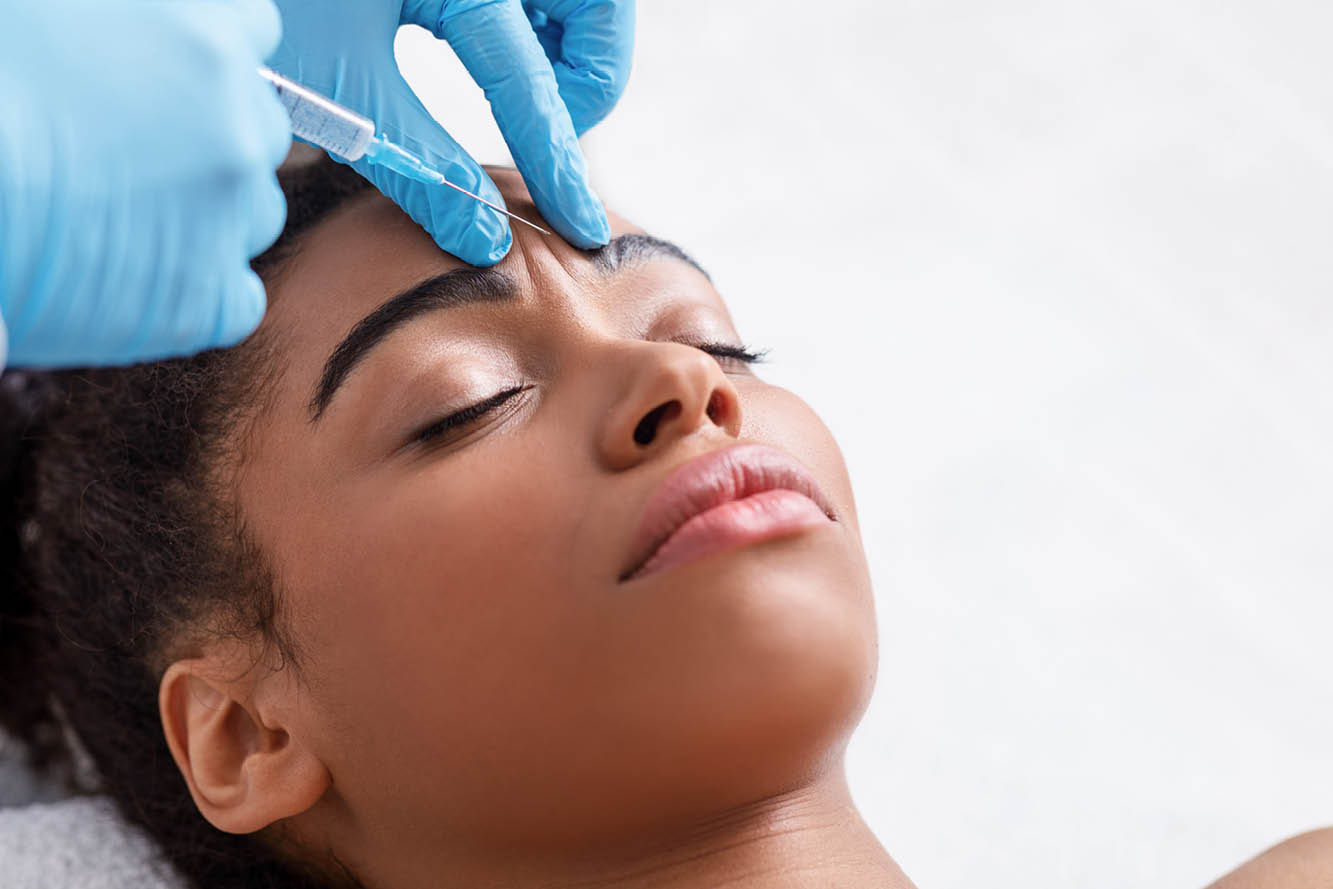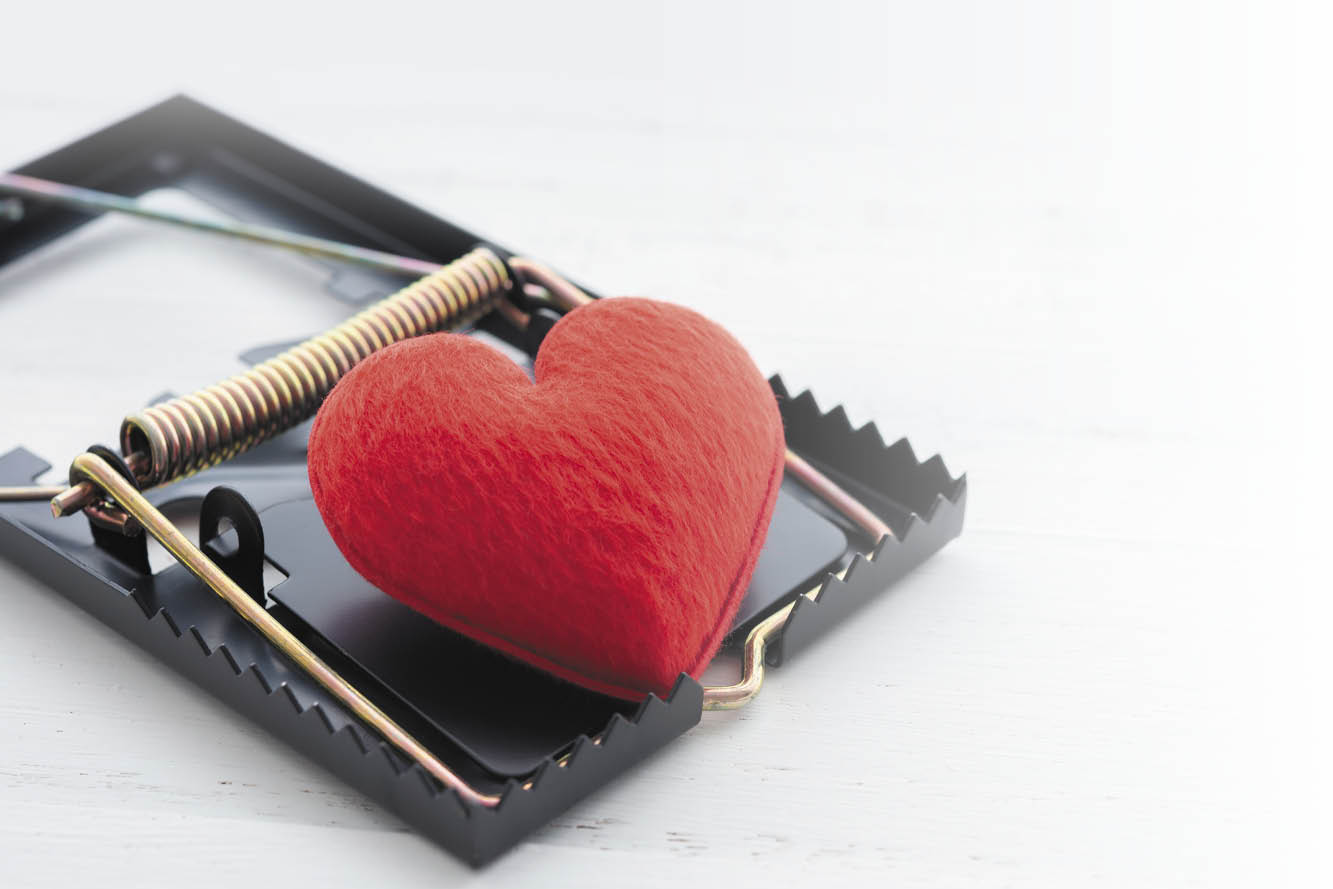
Top Injector Account in the Country
February 2021
Beware Online Romance Scammers
February 2021As your dental needs change with time, it’s important to know how to properly care for your teeth and what to expect at each stage of life. It’s also important for parents to know how to care for their children’s teeth as they grow. Follow this age-by-age guide for details.
Infants
Although your child may only have one or two teeth at this point, children less than one year old experience critical development of their teeth and gums. Dr. Eric A. Sanders with Sanders Pediatric Dentistry says parents should begin an early oral hygiene routine by wiping an infant’s gums with a soft wet cloth after feedings. He advises that at one year old, bottle feedings should stop, especially at night, in consultation with your pediatrician.
Toddlers
Between the ages of one and two, Dr. Sanders recommends you brush your child’s teeth twice a day with water, using a baby toothbrush with soft bristles. It’s best to brush their teeth after they eat breakfast and before they go to bed. Their teeth will be coming in at this point, so they may experience some discomfort. At age two, your child can start brushing their teeth on their own (with supervision) and use fluoridated toothpaste to help prevent cavities.
“This is also the time to schedule your child’s first dental visit so your dentist can look over your child’s teeth and gums,” Dr. Sanders says. At the appointment, you can also discuss any sucking habits, if they have any. Many toddlers like to suck on pacifiers too strongly, or they might suck their thumb or fingers. This can affect the shape of their mouth and their bite. Your dentist or doctor can help advise you on what you can do to get them out of these habits.
Kids
Between the ages of three and 12 years old, your child’s baby teeth begin falling out and their permanent teeth start coming in. The tooth fairy may make visits to your house, but you’ll need to find ways to motivate your kids to brush their teeth well. Phone apps are available, but you can also make the routine more fun by brushing your teeth along with your child.
Juice drinking is common at these ages, but juice contains a lot of sugar, which is bad for your child’s teeth. If you give your children juice, make sure they don’t drink more than one cup each day. Dr. Sanders recommends limiting juice to mealtimes only.
Dr. Sanders adds that dentist visits should be every six months. Six-year molars should be sealed. At ages seven to eight, dental x-rays should be taken to evaluate permanent teeth yet to emerge. At ages nine to eleven, pre-molars should be sealed, and the teeth appearance and hygiene efforts evaluated. Also at this time, consider an orthodontic evaluation.
Adolescents and Teens
By this age, children will have been fully responsible for the care of their teeth for several years, but that doesn’t mean parents are off the hook. There’s still work to do on their teeth and they need your help. This age can be tough on teeth because they’re often in a hurry with school and other activities. Emphasize the importance of proper dental care.
If your teen wears braces, this adds another level of concern. Braces require a different brushing routine due to brackets and wiring. Follow your orthodontist’s instructions.
Dental Emergencies
Some children are more adventurous than others, and that means a higher chance of chipped, broken or knocked-out teeth. If this happens, don’t panic! Visit your dentist immediately and he or she will determine a solution. If your child’s tooth gets knocked out, place the tooth in a cup of water or milk until you can get to your dentist, who may be able to reimplant the tooth.
“Kids know only a couple things when they go to the dentist. They know if you are nice and if you don’t hurt them. They do not understand cost, quality, or expected outcomes,” Dr. Sanders says. “Our goal besides treating pediatric patients in a non-threatening environment is that we want children to continue going to the dentist
when they are old enough to make their own decisions. We want them to graduate from our office with a healthy respect for their oral hygiene and a continued desire to maintain regular dental checkups.”
20's & 30's
With your 20s and 30s come a lot of changes. You may be finishing college, moving to a new city, getting a new job, getting married, having kids, etc. All the while, your teeth still require care.
Wisdom Teeth Removal
If you didn’t have your wisdom teeth removed in your teens, you may need to have them removed in your twenties. Not everyone needs to have their wisdom teeth removed—sometimes they come in just fine—but there are many people who do. Your dentist will be able to keep an eye on how your wisdom teeth are coming in and tell you if you need to have them removed. Even if they aren’t causing you any pain, there could still be a problem, so continue dental visits every six months.
Gingivitis during Pregnancy
Women are more vulnerable to getting gingivitis when they’re pregnant than at any other time so it’s important to take care of your teeth before, during and after pregnancy and see your dentist during pregnancy so he/she can help you keep your teeth clean.
40's & 50's
For adults of every age, it’s important to keep up with your dental routine—brushing twice a day, flossing daily, watching your diet and visiting your dentist regularly. As you age, your teeth age with you and they become more susceptible to gum disease and cavities and can become more sensitive. Fortunately, for each problem, there’s a solution.
Gum disease
If caught early, gum disease is reversible through treatment. Look for red, swollen or tender gums that bleed when you brush your teeth. If you notice any of those symptoms, make an appointment with your dentist. Gum disease, if left untreated, can lead to tooth loss and affect your overall health. The best way to prevent gum disease is by following your daily dental routine and visiting your dentist for professional cleanings every six months.
Cavities
If you have fillings, it’s possible you could acquire more cavities around your existing fillings. This becomes more common as you age. For prevention, floss, brush your teeth properly with fluoride toothpaste and visit your dentist regularly.
Sensitivity
The risk of having sensitive teeth increases with age. As your gums recede—as they typically do when you age—your teeth aren’t as protected by enamel. If you experience any sensitivity, try using an anti-sensitivity toothpaste. If the sensitivity worsens, talk to your dentist about other options.
Damaged Teeth
With the wear and tear on your teeth over the course of time, there’s bound to be some damage. To strengthen your damaged teeth, dentists will use crowns to cover the tooth to help protect it. For decayed teeth, a root canal may be needed.
Seniors
Seniors are more susceptible to dental diseases than any other age group. There are several oral health problems you may have to deal with as a senior, but there are solutions to all of them. Meanwhile, do what you’ve always done: watch what you eat, brush twice a day, floss daily and visit your dentist regularly. As a senior, you may also want to talk to your dentist about what drugs you take to see if they have any effect on your oral health.
Whatever age group you fall into, keep up with your daily dental routine and visit your dentist regularly. The key to dealing with dental health problems as they come your way is good communication with your dentist.






